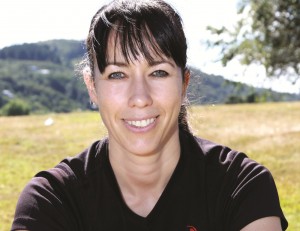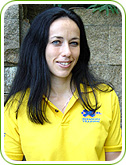

I have been a fitness professional for 13 years now and I have been reflecting on how my role as a personal trainer has changed but also on how the needs of my clients have evolved over the years.
When I started in the fitness business my main focus was on delivering exercise programmes to my clients so that I could help them get fitter, lose weight and manage injuries and pain. However, with a much faster pace of life and increasingly more pressures from many sources this approach alone is not as effective.This has resulted in major changes in how I prescribe exercise, the eating plans that I recommend and the lifestyle/behaviour type issues that I deal with.
The changes
Exercise
When I started as a trainer I was based at a gym and was mainly training clients utilising the resistance machines with very few body weight exercises. I also created longer workouts for my clients and always prescribed isolation exercises such as bicep curls and some type of crunch for the abdominals.
Now
I work outside of the gym environment in people’s homes(have done for 9 years) and I create shorter workouts for clients that are mainly body weight focussed and that utilise minimal equipment. I emphasis big movements that work as many muscles as possible and that are functional for the client. I have totally removed any type of sit ups from their programmes and any isolation work unless they have a specific rehabilitation requirement. I instead incorporate core work to work the inner abs and exercises that will challenge balance.
Diet
Back then I was focused on giving my clients advice on how to cut fats out of their diets (including butter and cream), reduce red meat and salt and increase water and fruit and vegetable consumption. I was also an advocate of eating every 3-4 hours.
Now
I advise my clients to consume a high protein, high fat diet with plenty of fruit and vegetables and less carbohydrates.I now concentrate on gut health and advise clients to include fermented foods such as Tempeh and Sauerkraut and including Kefir yoghurt in their diet which helps restore the good bacteria to the gut. 80% of the immune system is located in the gut and poor gut health could prevent weight loss and cause people to feel sluggish. I also recommend that clients eat when they feel hungry or to prevent them overeating at their next meal.
Lifestyle/stress management
Back then this area was hardly touched upon as I believed that I could help my clients by taking them through exercise programmes and helping them change their diets. My NLP (Neuro Linguistic Programming) skills were utilised way less though occasionally I helped clients with food addictions.
Now
Seventy per cent of the clients I work with suffer from stress or anxiety.For them, prescribing an exercise programme is not the best course of action and also could exacerbate their condition. It’s like going to the doctor repeatedly for a reoccurring headache. The GP keeps prescribing them painkillers which may take care of the symptoms for a while, but does not treat or cure the cause.
We now know that exercise and diet alone is not the most effective strategy for people that are stressed or wanting to lose weight. Using coaching techniques I teach people how to get adequate sleep, manage their time, learn to deal with worry and anxiety and to break through old behaviours that are an obstacle to their health and wellness. Only once I get some of their anxiety and stress reduced, do I prescribe exercise.
Coaching and NLP has taken the lead in how I work with clients. I am thankful that I have the training and experience to be able to help my clients in that way and make a significant difference to their well-being and long term health. Personal Trainers of our generation need to ensure they have the additional skills to help today’s client and be at the top of their game.
I would be interested in peeking through a crystal ball to see how personal trainers in general will be working in the future and if the needs of society will continue to change as much as they have in the last ten years.
Posted 21st October 2015
